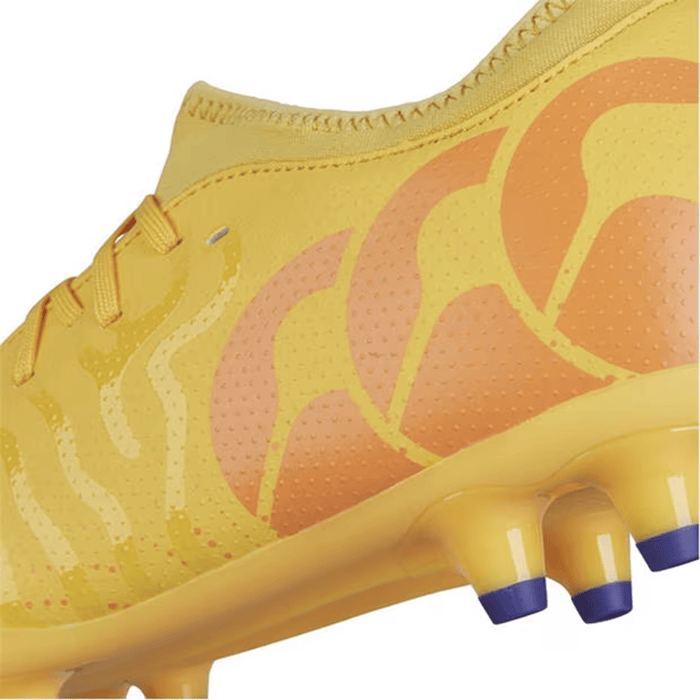What are the differences in Rugby Boots?
-

Firm Ground Rugby Boots
Firm Ground (FG) boots are made for firm natural surfaces or artificial grass fields. Typically, firm ground boots have short, molded studs that are permanent and made out of rubber or other non-metal material. This makes them ideal for absorbing force and being able to grip even when they cannot penetrate the ground deeply. Long metal studs can actually cause an "ice skating" effect on very hard ground as they cannot penetrate the surface, but keep you elevated due to the stud length. Firm ground boots avoid all of that.
-

Soft Ground Rugby BOOTS
As the name implies, soft ground boots are designed for soft, natural surfaces. They will have longer, typically metal, removable studs so you can adjust the lengths to handle different conditions. This allows you to have shorter studs if the fields are soft but not wet. And if the fields are muddy or sodden you can use extremely long studs for extra grip.
There are a range of studs you can utilize, including short plastic studs, that make SG boots very versatile. You can even convert them to work on firm grounds or artificial grass fields.
BOOTS BY POSITION
-
Rugby Boots for Forwards
8 studs in a 6x2 formation make these boots sturdy. Forward boots typically have longer studs, providing greater grip, which is ideal for play in rucks, mauls and scrums.
-
Rugby boots for backs
6 studs with a 4x2 layout reduces the weight of the boots. The studs are typically shorter, which also makes the boot lighter and allows for faster movement and pivoting.
How do I decide?
-
Understanding the kind of field conditions you are typically going to encounter is the single biggest factor to consider. Do you live in the arid southwest? If so you likely won't have much need for soft ground boots. Live in the pacific northwest? Soft ground boots will be hugely valuable.
Secondly you'll want to then think about your position. If you are a tight five forward, grip is your single biggest concern due to the demands of scrummaging. You'll want 8 studs with as much length as the field will allow. If you are a flyhalf you'll probably want a "backline" boot that is more oriented around kicking and running.
To be safe, it is usually a good idea to have a pair of soft ground and a pair of firm ground boots best suited for your position. Another option is to get a pair soft ground boots and one of our all surface stud kits to allow you to convert the boot to whatever field conditions you are likely to face. This will keep you from need two pairs of boots.
(Studs and stud kits can be found here: https://www.worldrugbyshop.com/collections/rugby-studs)
When trying on boots, it is important that they fit tightly and snugly without being uncomfortable. However, if your feet are still growing, as is the case with children and teenagers, it is a good idea to give a little space for growth.


